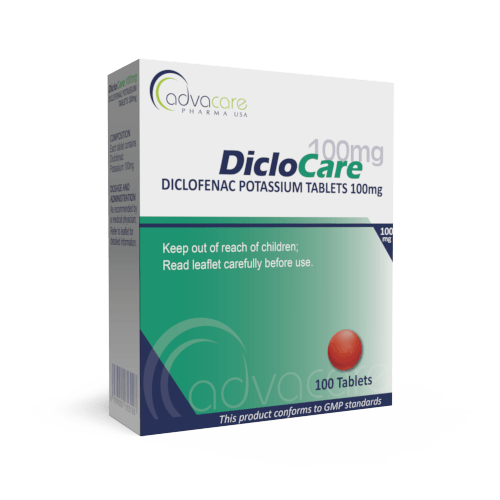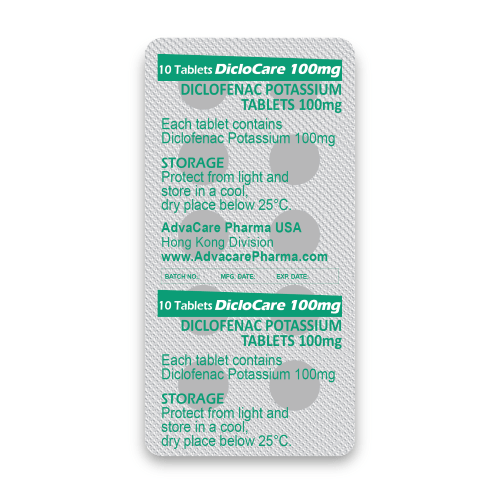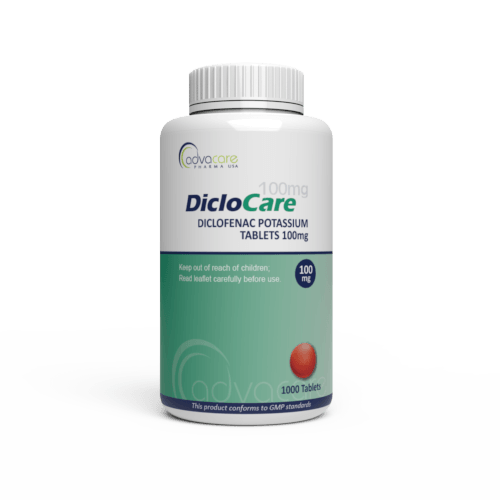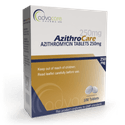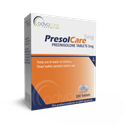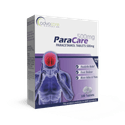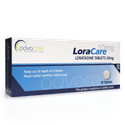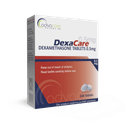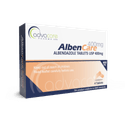- Home›
- Pharmaceuticals›
- Pharmaceutical Tablets›
- Diclofenac Potassium Tablets
Diclofenac Potassium Tablets
Dosage
Packaging
What is Diclofenac Potassium?
Active Ingredients: Diclofenac Potassium
Diclofenac Potassium Tablets are a non-steroidal anti-inflammatory drug (NSAID) used to reduce mild to moderate pain and inflammation caused by different types of arthritis, such as osteoarthritis and rheumatoid arthritis. It is also used to treat sports injuries, menstrual pain, dental pain, and other conditions.
As an NSAID, diclofenac potassium displays analgesic, anti-inflammatory, and antipyretic properties.
Though the exact mechanism of action is not fully known, it is known to inhibit cyclooxygenase (COX-1 and COX-2). This inhibits the production of prostaglandins, which are involved in inflammation and pain signaling.
AdvaCare Pharma is a global distributor and manufacturer of Diclofenac Potassium Tablets. We offer a wide range of high-quality and cost-effective medications that are available for distribution. Our medications are produced in our GMP-certified facilities in China, India, and the USA.
Why are we a trusted Diclofenac Potassium manufacturer?
As a reputable Diclofenac manufacturer, we are dedicated to ensuring that GMP guidelines and standards strictly apply to the manufacture of our entire range of 200+ pharmaceutical treatments in tablet dosage form.
AdvaCare Pharma is an American pharmaceutical company committed to the manufacture of high-quality, affordable pharmaceuticals for a global market. The extensive international network that we partner with includes pharmaceutical distributors, hospitals, pharmacies, and a variety of other medical institutions. Our vision is to manufacture Diclofenac Potassium Tablets, and other quality-assured oral solid treatments, that get into the hands of those that need them most.
Uses
What is Diclofenac Potassium used for?
It is used to reduce mild to moderate pain and inflammation associated with various conditions, such as headache or dental pain. It is also used to treat symptoms caused by arthritis.
How should Diclofenac Potassium Tablets be used?
This medication is intended to be taken orally.
What dose should be taken?
Adults Recommended dosage may vary based on different medical conditions:
- For relief of pain and dysmenorrhea, the recommended dosage is 50mg, taken three times a day after an initial dose of 100mg. Treatment can be initiated at the first appearance of symptoms and continued for a few days.
- For the relief of osteoarthritis symptoms, the recommended dosage is 50mg, taken two or three times a day. The maximum daily dose is 150mg.
- For the relief of rheumatoid arthritis symptoms, the recommended dosage is 50mg, take three or four times a day. The maximum daily dose is 225mg.
- For the relief of ankylosing spondylitis symptoms, the recommended dose is 25mg four times a day with an additional 25mg before bed, if necessary. The maximum daily dose is 125mg.
Children (≥ 12 years) For the treatment of pain, the recommended dose is 25mg four times a day.
The dosage is based on medical condition, response to treatment, age, and weight. Refer to a doctor or pharmacist for guidelines on dosage. Do not exceed the advisable dosage.
What happens if a dose is missed?
The missed dose can be taken as soon as possible. Skip the missed dose if it is almost time for the next dose. Do not take extra medicine to make up for missed doses.
The exact dosage and duration of treatment are based on the response.
Diclofenac potassium is not interchangeable with other diclofenac sodium or diclofenac products; reassess the dose if switching between products.
Who can use Diclofenac?
Diclofenac can be administered to adults and children (≥ 12 years), but caution is advised for specific groups of patients.
Pregnant Diclofenac use is not recommended after 30 weeks gestation. Human and animal studies have shown diclofenac does cross the placenta.
NSAIDs, including diclofenac, increase the risk of premature closure of the fetal ductus arteriosus, fetal renal dysfunction, neonatal renal impairment, which may lead to limb contractures or delayed lung maturation. NSAID use during late pregnancy should be avoided. If diclofenac treatment is deemed medically necessary during the third trimester, doses should be the lowest necessary to produce benefit and treatment should be as short as possible.
Those who are trying to get pregnant should avoid diclofenac, as it can delay ovulation and reversibly impact fertility.
Nursing Diclofenac may be excreted in human milk in small amounts. The effects on nursing infants are currently unknown. Nursing while taking diclofenac may be safe, but other medications may be preferred. If it is medically necessary, the potential patient benefits and infant risks should be carefully considered.
Pediatric The safety and efficacy of diclofenac have not been established in pediatric patients < 12 years of age.
Geriatric Current data have not demonstrated differences in responses between older adults (≥ 65 years) and younger adults. However, due to the increased risk of adverse gastrointestinal and cardiovascular events, dosing in geriatric patients should be done with caution because of age-related decreases in organ function and concomitant disease and drug therapy. Close observation by a doctor is recommended.
Other warnings
In patients with hepatic insufficiency, dosage reductions may be necessary, as diclofenac is primarily eliminated hepatically.
In patients with renal insufficiency, dosage adjustments may not be necessary.
Concomitant use of diclofenac with other prescription or over-the-counter NSAIDs is not recommended due to the increased risk of adverse gastrointestinal events.
Clinical studies of various NSAIDs have shown an increased risk of serious CV thrombotic events, including myocardial infarction and stroke, which can be fatal. It is unclear if the risk of adverse CV events is similar for all NSAIDs. The increased risk of adverse CV events from NSAID use appears to be similar in those with and without CV disease or dysfunction, however, those with CV disease or dysfunction had higher incidences of adverse CV effects.
These effects can begin as early as the first weeks of treatment and have mostly been observed at higher doses. To minimize the potential risk, the lowest effective dose should be used for the shortest duration possible. There is no evidence that concomitant use of aspirin can mitigate these risks and its use with diclofenac increases the risk of adverse gastrointestinal events.
Cases of severe hepatic reactions, including liver necrosis, jaundice, fulminant hepatitis with and without jaundice, and liver failure, some of which resulted in fatalities or liver transplantation have been reported with diclofenac use. Those who are female, taking doses ≥ 150mg, and taking diclofenac for longer than 90 days are at increased risk of hepatotoxicity. Patients on long-term treatment should have transaminase levels monitored at baseline and periodically throughout treatment. Diclofenac treatment should be discontinued immediately if elevated hepatic transaminases persist or worsen, if signs or symptoms of liver disease develop, or if signs of systemic liver dysfunction occur.
Long-term NSAID use can result in renal papillary necrosis and other renal injury. Those with impaired renal function, heart failure, hypovolemia, liver dysfunction, dehydration, taking diuretics and ACE inhibitors or ARBs, and who are older are at a greater risk of developing renal toxicity. The effects are usually reversible with NSAID discontinuation.
NSAIDs, including diclofenac, can cause serious and potentially life-threatening GI adverse events, including bleeding, inflammation, ulceration, and perforations of the esophagus, stomach, small intestine, or large intestine. Patients who are older, have a history of GI disease or bleeding disorders, consume ≥ 3 alcoholic beverages while taking this medication, or take dosages larger or longer than recommended are at a much greater risk for developing these conditions. Concomitant use of diclofenac with other NSAIDs, oral corticosteroids, aspirin, anticoagulants, selective serotonin reuptake inhibitors (SSRIs), or serotonin and norepinephrine reuptake inhibitors (SNRIs) can also increase the risk. These serious adverse events can occur at any time, with or without warning symptoms, and only 1 in 5 patients are symptomatic. Most cases involve long-term treatment (3 months-1 year), but short-term use is not without risk. Diclofenac should be discontinued immediately if a serious gastrointestinal event is suspected or confirmed. The lowest effective dose should be used for the shortest duration possible to minimize the risk of adverse GI events.
NSAID use after coronary artery bypass graft is contraindicated due to the increased incidence of myocardial infarctions and strokes with NSAID use following surgery.
The antipyretic and anti-inflammatory effects of diclofenac may mask the clinical signs of present infection.
Side Effects
As with all pharmaceuticals, some unwanted effects can occur from the use of Diclofenac Potassium Tablets.
Common side effects include, but may not be limited to:
- gastrointestinal disturbances
- drowsiness
- headache
- dizziness
For a comprehensive understanding of all potential side effects, consult a medical professional.
If any symptoms persist or worsen, or you notice any other symptoms, please call your doctor immediately.
Precautions
Do NOT use Diclofenac Potassium Tablets if:
- You are allergic to any of the ingredients or other NSAIDs.
- You have had a heart bypass surgery.
- You have a history of heart attack, strokes, or blood clots.
- You have asthma.
- You have heart, liver, or kidney disease.
- You have a history of peptic ulcers or bleeding in the digestive tract.
- You use blood pressure medication or corticosteroids.
Before treatment, consult your doctor regarding any medications you are taking to address potential drug interactions.Some products that may interact with diclofenac are ACE inhibitors, angiotensin II receptor blockers, corticosteroids, cidofovir, lithium, methotrexate, and diuretics, such as furosemide.
Avoid alcohol or marijuana use while taking diclofenac potassium, as they can increase its drowsiness effects.
This medication may not be suitable for people with certain conditions, so it is important to consult with a doctor if you have any health conditions.
References
A double-blind, placebo-controlled trial comparing the analgesic efficacy of two formulations of diclofenac in postoperative dental pain
This is a double-blind, randomized, parallel-group, placebo-controlled study that was conducted to compare the analgesic effect of single doses (50mg) of enteric-coated diclofenac sodium with a new sugar-coated formulation, diclofenac potassium. The research included 151 adults suffering from moderate to severe pain after extraction of an impacted third molar.
The patients were observed for a period of 6 hours and they used a verbal rating scale for the pain intensity and pain relief. The results showed that both drugs had a significant reduction in pain in the time range from 15 minutes to 2 hours. The patients reported a faster and better analgesic effect when considering the intensity and pain relief scores.
The conclusion is that both diclofenac drugs are effective in relieving postoperative dental pain, but diclofenac potassium is a better option for acute painful disorders because it provides a quicker analgesic effect.
Single dose oral diclofenac for acute postoperative pain in adults
This research assesses the analgesic efficacy and adverse effects of a single oral dose of diclofenac for moderate to severe postoperative pain. It is a randomized, double-blind, placebo-controlled clinical trial of a single dose, of oral diclofenac (sodium or potassium) for acute postoperative pain in adults.
The authors of this research used different databases that included studies related to the efficacy of diclofenac in pain relief.
This paper included 18 studies involving 3714 participants, 1902 treated with diclofenac and 1007 with placebo. In seven studies, the most data set for diclofenac potassium 50mg indicated an NNT of 2.1 (95% CI 1.9 to 2.5) for achieving at least 50% of maximum pain relief compared to a placebo, which means high-quality evidence. As doses increased from 25mg to 100mg, there was a higher efficacy, both in patients achieving at least 50% maximum pain relief and in the need for remedication within 6 to 8 hours.
The conclusion is that diclofenac potassium provides good pain relief at 25mg, 50mg, and 100mg doses.

You might be interested in...
Why AdvaCare Pharma?
As an industry leader, we are aware of our responsibility to provide affordable and sustainable solutions to improve healthcare worldwide.
